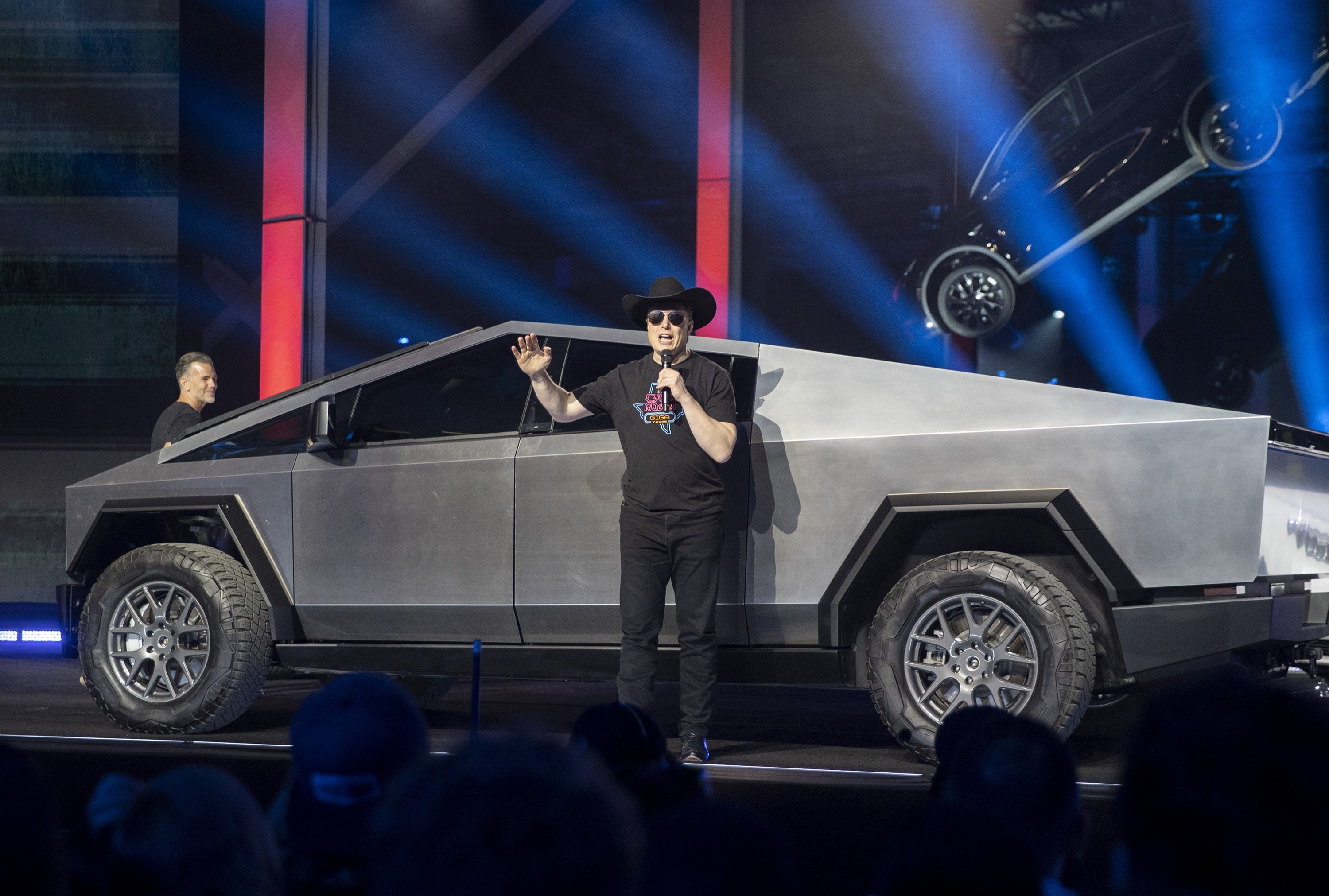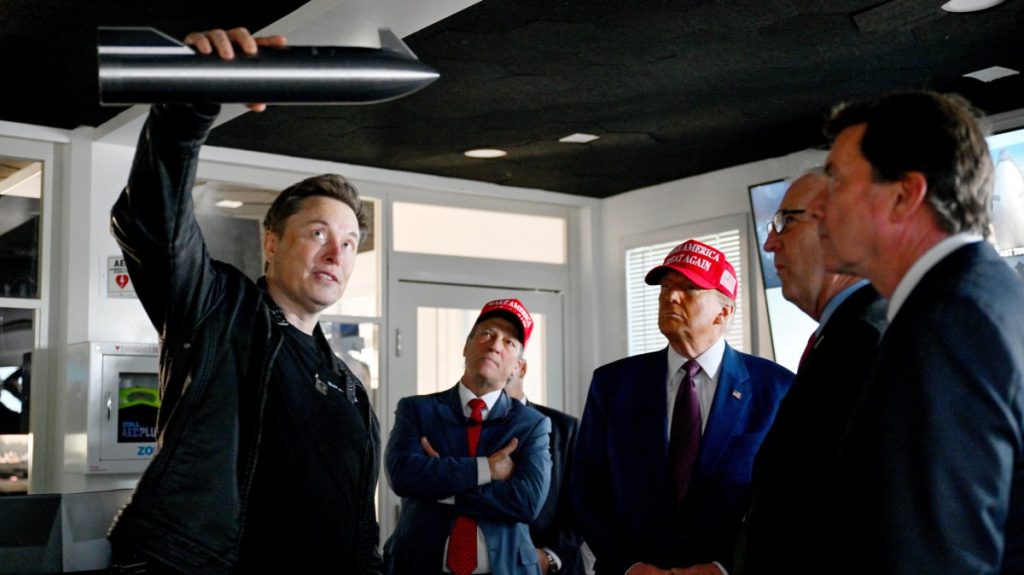During the 2024 election process, a prominent figure who frequently appeared at President-elect Donald Trump’s Mar-a-Lago estate, Elon Musk, became a figure leaving a mark not only in the world of technology but also in politics, reshaping the dynamics of the modern era. Musk’s influence on the U.S. presidential elections demonstrates that he is more than a tycoon; an actor with a voice in global power balances. He skillfully uses the power of innovation and digitalization to enhance his political and social influence.
Through remarkable achievements in the tech world, Musk has become one of the most influential figures in the U.S. His partnership with NASA, which enabled SpaceX to revolutionize space exploration, earned him the public image of an “innovative leader.” The transformation he initiated in the electric vehicle market through Tesla, reducing reliance on fossil fuels, gained him broad support. Furthermore, Musk’s influence extends beyond technology. His speculative statements on cryptocurrencies caused fluctuations in billion-dollar markets, demonstrating his pivotal role in digital finance.
Musk’s acquisition of the X platform (formerly Twitter) granted him an even wider sphere of influence. He gained the power to directly shape political and social perceptions by reaching millions through this social media platform. Particularly during the U.S. elections, his capacity to sway public opinion positioned him as an influential figure not just in business but also in politics. Thus, Musk has evolved into one of the most prominent figures of the modern era, not only as a businessman but also as a “new type of power center.”
Why Trump instead of Harris?
Musk’s support for Donald Trump stems from certain disagreements with the U.S. President Joe Biden administration and the Republican Party’s pro-business deregulation policies. The Biden administration’s exclusion of Tesla from the “United Auto Workers Event” in 2021 symbolized more than a minor oversight for Musk. As Tesla plays a pioneering role in U.S. electric vehicle production, its exclusion underscored, in Musk’s view, the Democrats’ and Biden administration’s lack of appreciation for innovative companies like Tesla.
On the other hand, Musk’s affinity for Republicans aligns with their liberal economic policies. Trump’s promises to reduce regulations in the electric vehicle market were interpreted as measures that would allow Tesla to operate more freely.
Additionally, Trump’s pledges to cut taxes for large corporations and the wealthy created appealing advantages for entrepreneurs like Musk. From this perspective, Musk’s support for Trump appears not merely as a political preference but as a strategic move to bolster his business activities and corporate interests. For both Tesla’s growth and his personal ideology, Musk seems to have found a political platform that aligns with his goals.
When Musk acquired Twitter (now X), he promised the platform would remain a neutral space for free expression and not become politicized. However, despite these claims, the platform seemingly facilitated the spread of manipulative content during the election process, with his actively taking sides and using it to support his political views. Particularly during the U.S. elections, he leveraged his influence on the platform to consolidate Republican voters.
With over 203 million followers on X, Musk’s election-related posts supporting Trump and criticizing the Democrat candidate Vice-President Kamala Harris had a significant impact on public opinion. The visibility of claims on platform X regarding “illegal immigrants” voting and conspiracy theories suggesting that Democrats would use undocumented immigrants to expand their voter base in the future has reinforced rhetoric that deepens divisions in society over elections.
Experts estimate that these posts generated approximately $24 million in value for Trump during the election. This level of influence is widely regarded as highly effective in potentially altering the election’s outcome.
Musk’s financial contributions to Trump’s campaign also drew significant attention. His total donations of $118 million to a super PAC supporting Trump bolstered the campaign financially while revealing Musk’s open political allegiance. Moreover, his lottery offering $1 million prizes to individuals registering to vote attracted significant interest, increasing voter turnout. These moves highlighted his determination to leverage his influence to shift the electoral winds in Trump’s favor.
His role in U.S. governance
Recently, Trump announced that Musk would lead the newly established “Department of Government Efficiency” (DOGE). Musk’s assignment to implement radical reforms, such as downsizing the government and reducing expenditures, can potentially create widespread transformation within the federal bureaucracy.
However, some experts in the U.S. have expressed skepticism about the feasibility of Musk’s proposed reduction of one-third of the federal budget, citing the irrevocable nature of mandatory expenditures such as Social Security and Medicare. Nevertheless, even among Democrats, there is a contingent that endorses the notion of curbing defense spending. This includes prominent figures such as Senator Bernie Sanders and Representative Ro Khanna, who have aligned themselves with DOGE’s critiques of the defense budget.
Moreover, Musk’s involvement in the U.S. administration may also signal profound changes in technology-focused state policies. Considering his technological vision, innovative initiatives and bold strategies, his role in governance could bring transformations in areas like artificial intelligence, space exploration, and energy-automotive policies.
Musk’s close colleagues are taking influential roles in Trump’s transition offices, seeking to increase government efficiency and technology innovation. In addition to DOGE, Musk is placing his allies in the Trump administration in pivotal positions to manage tech and crypto policies. For example, former PayPal executive David Sacks was appointed as the “White House AI and Crypto Czar,” while tech billionaire Jared Isaacman, closely connected to SpaceX, was assigned to lead NASA. This process could further align the Trump administration’s policy direction with the entrepreneurial approach characteristic of Silicon Valley.
However, given that implementing proposed reforms in critical areas, including the DOGE project, requires congressional approval, the extent to which these initiatives will come to fruition remains uncertain.

A long list of agenda
Appointing Musk to a high-level position may expedite decisions favoring his companies, such as Tesla and SpaceX, potentially disadvantaging competing firms. Policies supporting his investments would combine his business influence with political power, creating a dynamic that could spark controversy. For example, during the election process, Trump stated in his speeches that he planned to eliminate the $7,500 subsidy provided per electric vehicle in the U.S. At first glance, this might seem like a negative development for Musk’s Tesla. However, as a company earning approximately $8,000 in profit per vehicle, Tesla is uniquely positioned to withstand the removal of this incentive. This change could force other manufacturers out of the competition, leaving Tesla as an unrivaled force in the U.S. market and granting it the potential to reshape the future of the industry entirely.
Even before officially taking office, Musk’s participation in the meeting between Trump and Ukrainian President Volodymyr Zelenskyy, as well as his interactions with Iran’s U.N. Ambassador, clearly reveals the extent of the power he has gained in return for supporting Trump during the elections. From this, it can be inferred that Musk may also have the potential to reshape U.S. relations with major powers like China and Russia. Given Tesla’s extensive investments in China, Musk might aim to establish a pragmatic balance between economics and technology in U.S.-China relations. However, he would need to protect both U.S. interests and his investments, a dilemma that would be a crucial test of his ability to balance political and economic priorities.
Another issue on Musk’s agenda is the “woke culture,” which he has accused of influencing his son’s gender transition. Musk has stated that he is determined to combat this trend and even eradicate it completely. This movement, which Musk has described as a “woke mind virus,” advocates “extreme progressivism” on issues such as minority rights and gender transition. The question of how Musk will combat this movement, which has a destructive impact on social values, will remain a topic of significant public interest for the foreseeable future.
What is next?
It appears that the American PAC, under the direction of Musk, is continuing to apply pressure on Congress members to bolster Trump’s support base. However, it is plausible to hypothesize that Musk’s influence on Republican candidates may lead to internal party conflicts and potentially result in the nomination of less competitive candidates in the upcoming elections. From a long-term perspective, this could potentially lead to political gains for the Democratic Party compared to the Republican Party.
Musk’s potential candidacy in future U.S. presidential elections remains uncertain due to the constitutional requirement that he be a “natural-born citizen.” Born in South Africa, he appears ineligible under this criterion. However, the lack of a precise definition for “natural-born citizenship” and the possibility of Congress addressing this as a political matter leave a theoretical window open.
Although the recent completion of the elections suggests it might be premature to delve deeply into this matter, Musk’s continued rise as a new power center in both the U.S. and globally appears likely. His influence in technology and economics, even without holding a direct political position, enables him to sustain a powerful leadership role on a global scale – as long as he avoids clashes with Trump’s policies and conflict of interest issues.


